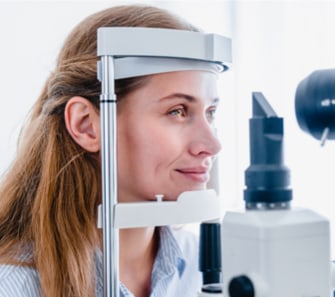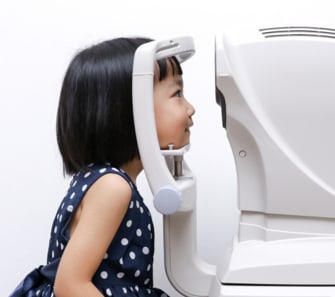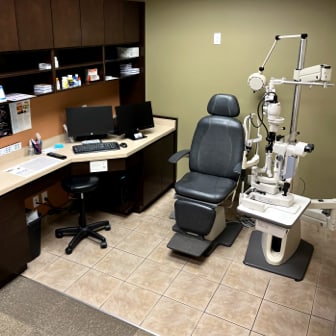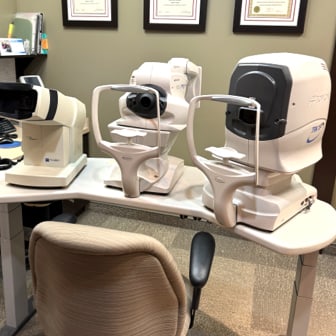If you normally suffer from dry eye then you’ll have noticed how much worse it can be in the winter. For those who aren’t plagued all year round, you may have developed dry eye symptoms over the winter without even realising what they were!
Despite being situated in a fairly humid part of the province, winters in Central Alberta are still dryer than the rest of the year. The cold and wind are both factors in why dry eye is worse in winter; let’s take a detailed look at one of winter’s most irritating health problems.
Mandatory plug: we offer dry eye therapy out of both our locations. Over the last almost-20 years we have helped thousands of people from Bonnyville, St. Paul, and rural Alberta enjoy relief from dry eye.
THE MAIN CULPRIT: THE WEATHER
Our eyes need a good deal of moisture and lubrication to keep rotating around our heads like they do. While the air isn’t as arid as much of North America, the cold wind still whips a lot of the moisture from our eyes.
Without this lubrication, your eye rubs against its socket whenever it moves. Even blinking can be painful and you can’t simply sit without blinking all day: the wind will dry them out even more!
Cool The AC In Your Car
When it’s cold outside, the temptation is to whack on the heating. At home, this will usually come from your furnace and isn’t a problem. In the car (or if you use air-conditioned heating at home) try to:
- Avoid directing the airflow toward your face, and
- Heat the car or room slowly.
These steps will help you get warm without further drying out your eyes.
Office Life Can Get You Down
After the cold journey into work, you’d think the warm and dry office would be a safe place to hide from dry eye. Sadly not.
Sitting facing a computer screen all day has been proven to dry out your eyes and is a common cause of dry eye all year round. When combined with the recycled air from your air-conditioned heating, your eyes could be in serious trouble. Take regular breaks away from any screens to moisten up your eyes.
THE ACCOMPLICE: DIET
Ever heard of a dehydrated eye? When we think of dehydration, it’s usually with thoughts of dry throats, coughs and light-headedness. In fact, when your body lacks fluid it can affect the amount of moisture available to lubricate your eyes as well.
During winter, your body’s thirst triggers are dulled, meaning that you are less compelled to take on fluids than in warmer months. It’s important to keep drinking water even if you don’t feel thirsty; having a bottle of water by your desk is a great solution.
Want the good news? You can eat your symptoms away! Warm soup or fresh fruit are both excellent ways to hydrate the body, so eat properly and you may notice an improvement in your condition.



























